2022 Award Winners
Significant progress was made in numerous innovation projects at Uppsala University in 2022. Eleven projects and startups were honored for ideas spanning a wide range of fields, including orchid cultivation and techniques for predicting undesirable behaviors.
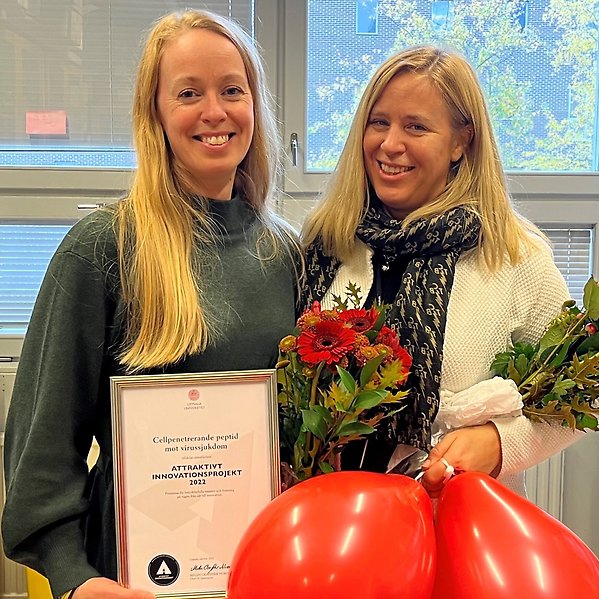
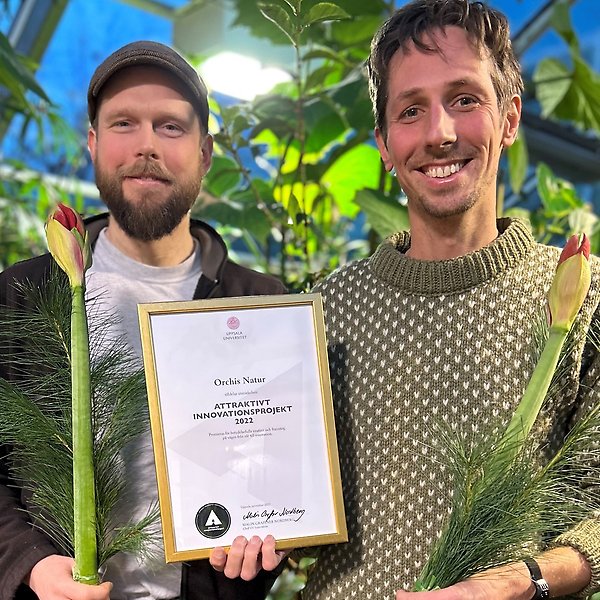
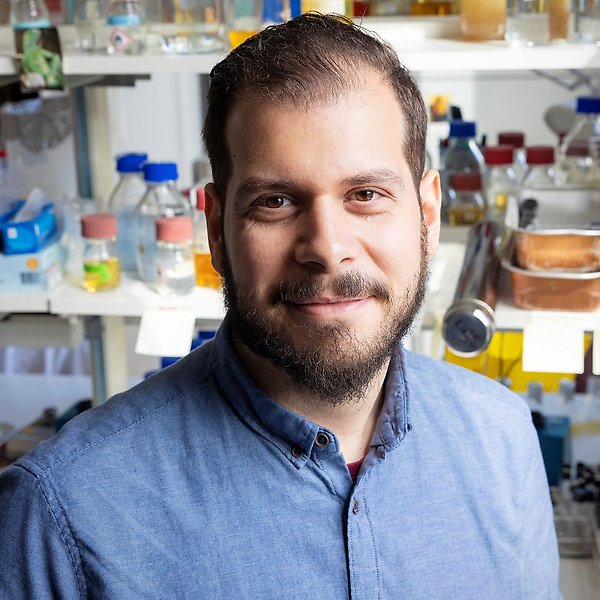
Cell-penetrating peptide against viral disease
The research team has developed a peptide that can penetrate cell membranes and be transported into cells, thereby inhibiting diseases caused by viruses, such as Covid-19. Behind the new and patented technology are Ylva Ivarsson, professor of biochemistry at the Department of Chemistry – BMC, Anna Överby Wernstedt, professor at Umeå University, and Jakob Nilsson, professor at the University of Copenhagen. To give the technology the best possible conditions to benefit, the team has transferred the rights to a partner who is responsible for identifying companies that want to take over the innovation project, such as pharmaceutical companies. The team has an option for future income from a commercialisation.
Orchis Natur
Orchis Natur grows European wild orchids for nature conservation measures such as reintroductions and to counteract the extinction of endangered populations. The methods used are based on the latest research in conservation biology and population genetics. Linus Söderquist, doctoral student in botanical ecology, and Simon Hultby, gardener at Uppsala Linnean Gardens are behind the company. Orchis Natur targets municipalities, county administrative boards and non-profit associations and has had its first customers during the year.
CombiANT
Researchers Nikos Fatsis-Kavalopoulos, Po-Cheng Tang, Roderich Römhild, Dan Andersson and Johan Kreuger have developed and applied for a patent for the CombiANT method with which the combination effects of different antibiotics can be investigated. Combination therapies are common in healthcare, despite the fact that until now there has not been an easy way to evaluate their effect. The research team's hope is that their method will eventually lead to the prescribing of active combinations of antibiotics to each patient, which can also contribute to a reduced resistance to antibiotics. The team has founded Rx Dynamics AB and as a first step has started sales to customers conducting research. Continued commercialisation of the product takes place with the support of financing from Vinnova and investment from UU Invest AB.
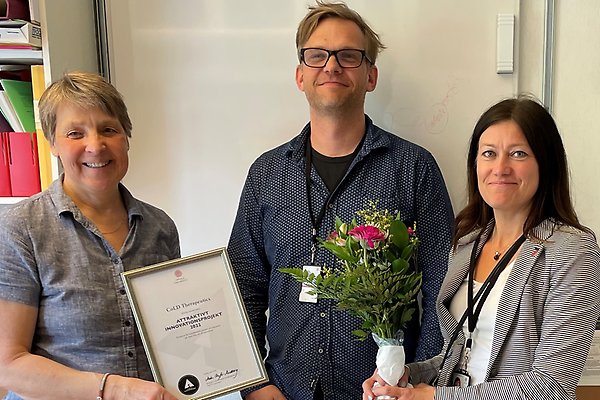
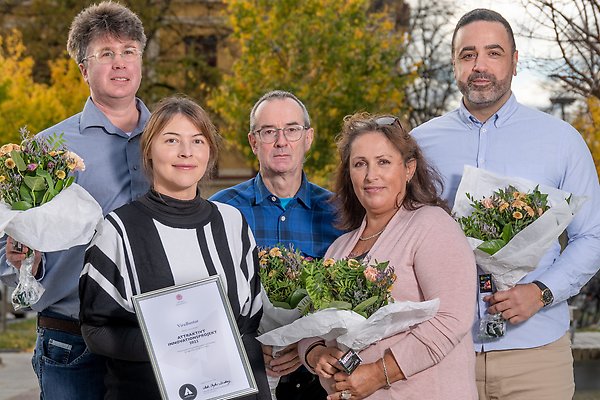
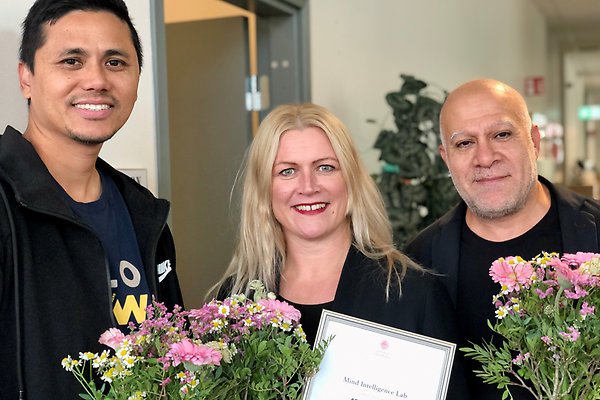
CoLD Therapeutics
The multidisciplinary research team, including Jens Carlsson, Department of Cell and Molecular Biology, Helena Danielson, Department of Chemistry (BMC), Anja Sandström and Lindon Moodie, Department of Medicinal Chemistry, has developed a group of novel molecules that have a very good ability to block coronavirus from replicating. The research has been carried out in collaboration with the pharmaceutical platform at the Science for Life Laboratory. The hope is that the discovery will form the basis of a future antiviral drug against coronavirus that can complement vaccines and contribute to treatment options against new virus variants. The road to a new drug is long, and the first step is to further develop the molecules to ensure that they have the essential properties required. UU Invest’s project company has invested in the project and is assisting the research team in investigating the interest of pharmaceutical companies to work further and develop the drug.
Virubustor
Colleagues Marvin Seibert and Kerstin Mühlig, researchers at the Department of Cell and Molecular Biology, have developed a new air purification solution that can be implemented quickly and cheaply in many different vehicles. The technique draws heat from the vehicle’s engine to sterilise the air and remove aerosols that may contain infectious agents such as coronaviruses. In order to commercialise the technology, the researchers have built a team and founded the company Virubustor. UU Invest AB has joined two other investors in supporting the project.
Mind Intelligence Lab
Mind Intelligence Lab develops technologies that make it possible to predict human behaviour – especially undesirable behaviour. This includes identifying the risk of violent behaviour and suicidal tendencies and detecting toxicity in online communication. Regardless of the area of application, one thing that all of these tools have in common is that they are based on analysing written digital communication and analysing the results to support assessment and decision-making. The technology – which combines machine learning, linguistic tags, behavioural psychology and statistics – reflects the broad palette of expertise assembled in the interdisciplinary research group behind the development: Nazar Akrami of the Department of Psychology and Lisa Kaati and Amendra Shrestha of the Department of Information Technology. UU Invest AB has invested in the company founded by the team to bring their tools to the market.
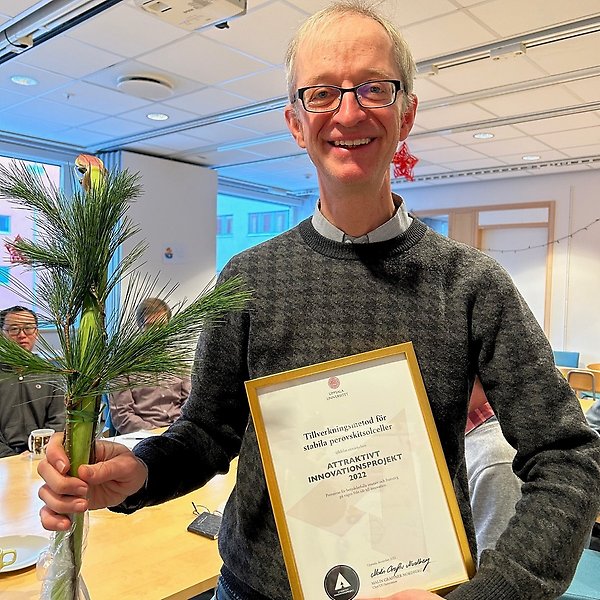
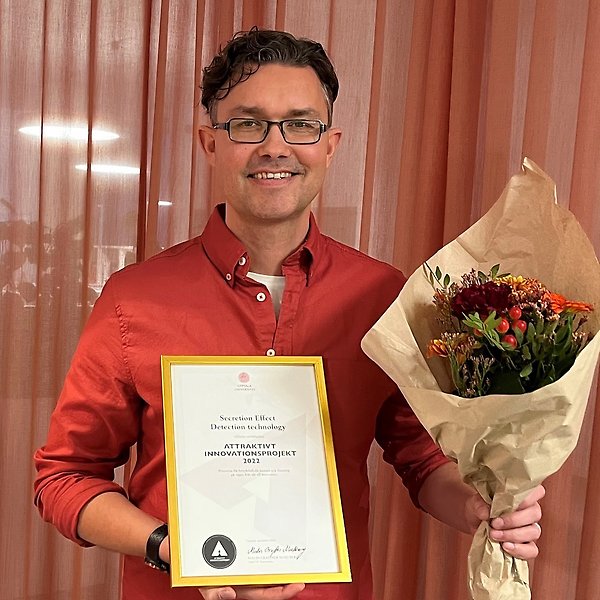
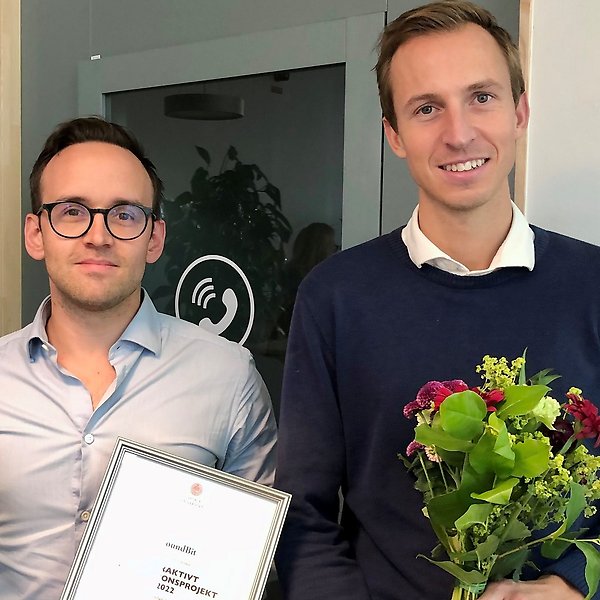
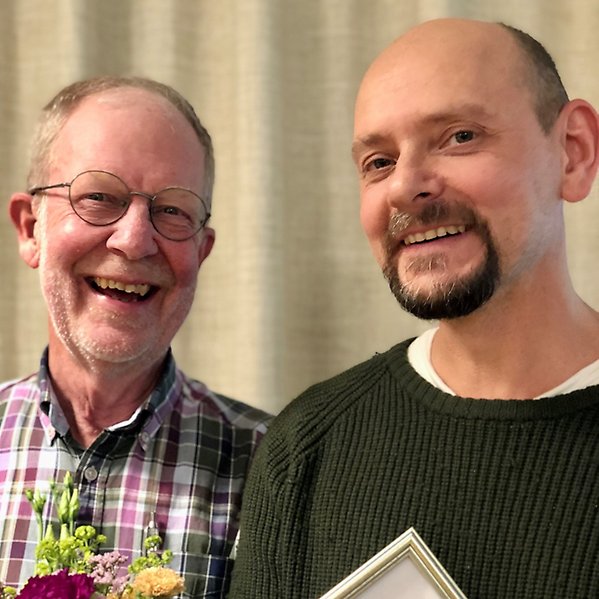
Manufacturing method for stable perovskite solar cells
Perovskite is a material that has received a lot of attention for its ability to produce lightweight, flexible and cheaper solar cells. Gerrit Boschloo, Professor at the Department of Chemistry – Ångström, has, within the framework of a project funded by SSF, developed a method for the manufacture of a solar cell module in which perovskite solar cells are connected in an efficient way. A patent has been applied for the method and transferred to a company for further development and commercialisation.
Secretion Effect Detection (SED) technology
Daniel Camsund, former researcher at the Department of Cell and Molecular Biology, has developed and patented a new technology, SED, that can speed up the development of new biological drugs. SED combines synthetic biology with microflow technology and can be used to measure the effects of various biomolecules secreted from cells, for example when screening new candidate drugs. The patent application and the innovation project have been sold to an international biotechnology company that will develop the technology further towards a commercial product.
RoundBit
Dendrit is a digital tool developed to replace the reams of paper currently used by doctors to organise their tasks. The aim is to make the everyday life of a doctor easier by allowing them to share medical records, gain an overview of their workflow and create customised checklists. Dendrit has been commercialised by RoundBit, one of the founders of which is Dr Fredrik Junerfält, an alumnus of the Faculty of Medicine at Uppsala University. The company completed its first sale during 2022.
Hjärne’s Elixir
Nils-Otto Ahnfelt, PhD pharmacist and visiting researcher at the Department of Pharmaceutical Biosciences, and Hjalmar Fors, a PhD and Docent in the history of science, have recreated the 300-year-old Hjärne’s Elixir (In Swedish: Hjärnes Testamente), a medicine invented by Swedish scientist Urban Hjärne and considered something of a universal elixir during the eighteenth century. The researchers’ modern taste reconstruction began as a side-project to a research project on reconstructing early-modern pharmaceuticals and culminated in the 2022 launch of Hjärnes Testamente, in the form of a bitter schnapps, by state-owned liquor store Systembolaget.
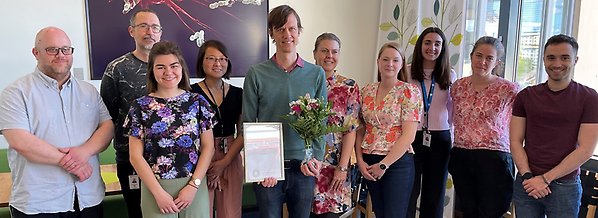
Tools for combined diagnostics and gene therapy of brain tumours
Building on promising results from a previous ERC Starting Grant project, Fredrik Swartling and his team are developing new tools to identify cells that have become resistant to standard treatments, usually radiation and chemotherapy, for malignant brain tumours. The aim is to use the tools to screen cells taken from biopsies during brain tumour surgery to better identify and treat patients at risk of serious recurrence. The project has received an ERC Proof of Concept grant to strengthen the conditions for future commercialisation.
